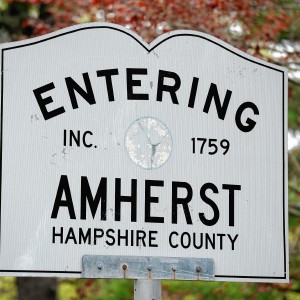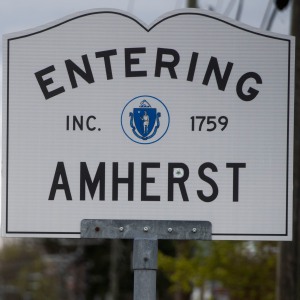Beacon Hill Roll Call, May 22-26
| Published: 06-02-2023 3:14 PM |
THE HOUSE AND SENATE: Beacon Hill Roll Call records local senators’ votes on roll calls from the week of May 22-26. All Senate roll calls are on proposed amendments to the Senate version of a $55.9 billion fiscal 2024 state budget. There were no roll call votes in the House last week.
Of the 1,049 amendments filed by senators, only 31 came to a roll call vote. Many others were simply approved or rejected one at a time on voice votes, some with debate and some without debate.
To move things along even faster, the Senate also did its usual “bundling” of many amendments. Instead of acting on each amendment one at a time, hundreds of the proposed amendments are bundled and put into two piles — one pile that will be approved and the other that will be rejected, without a roll call, on voice votes where it is impossible to tell which way a senator votes.
Senate President Karen Spilka, or the senator who is filling in for her at the podium, orchestrates the approval and rejection of the bundled amendments with a simple: “All those in favor say ‘aye,’ those opposed say ‘no.’ The ayes have it and the amendments are approved.” Or: “All those in favor say ‘aye,’ those opposed say ‘no.’ The no’s have it and the amendments are rejected.”
Senators don’t actually vote yes or no, and, in fact, they don’t say a word. The outcome was predetermined earlier behind closed doors.
Article continues after...
Yesterday's Most Read Articles
SENATE APPROVES $55.9 BILLION FISCAL 2024 BUDGET (S 3): Senate 40-0, approved a $55.9 billion fiscal 2024 state budget after adding an estimated $82.2 million in spending during four days of debate. The House has already approved a different version and a House-Senate conference committee will eventually craft a plan that will be presented to the House and Senate for consideration and sent to the governor.
Senate President Karen Spilka (D-Ashland), said “Massachusetts will be competitive so long as people from all over the world can come here to fulfill their dreams — whether by going back to school, advancing their career, starting a business or finding affordable housing and childcare to raise a family. At a time when our world-class educational institutions are more needed now than ever, this budget adds a new chapter in Massachusetts’ storied tradition of making education accessible to all through our Student Opportunity Plan.”
(A “Yes” vote is for the budget.)
Sen. Joanne Comerford, Yes; Sen. Paul Mark, Yes; Sen. Jacob Oliveira, Yes; Sen. John Velis Yes
IN-STATE TUITION RATES FOR ILLEGAL/UNDOCUMENTED IMMIGRANTS (S 3): Senate 3-37, rejected an amendment that would strike a section of the budget that would allow undocumented/illegal immigrants to qualify for the lower in-state tuition rate if they attended high school here for at least three years and graduated, or completed a GED. They would also be required to provide a college or university with a valid social security number or taxpayer identification number, an affidavit indicating they applied for citizenship or legal permanent residence, or plan to do so once eligible, and proof they registered for selective service if applicable.
“Extending in-state tuition to our undocumented students is not only a matter of fairness but a crucial step towards achieving educational equity and effectively addressing our workforce shortages,” said Sen. Pavel Pavano (D-Lawrence). “It is imperative that we tap into the potential of all our citizens to maintain our state’s competitive edge in the economy. Now is the time to rally behind this long-overdue policy change and guarantee that every aspiring student, irrespective of their immigration status, will actively contribute to the growth and prosperity of our commonwealth.”
“In-state tuition for undocumented immigrants is an example of one of the upside-down priorities found in the Senate budget,” said Sen. Ryan Fattman (R-Sutton) who sponsored the amendment to remove the lower tuition provision. “Prioritizing the needs of our citizens of the commonwealth should be the focus of the Senate, including providing tax relief to legal residents, adequately funding our schools including help with surging special education costs and investing in our small businesses and infrastructure. Our residents are leaving the state because it’s expensive and our elected leaders have the wrong priorities.”
“The Senate’s fiscal year 2024 budget focuses on expanding access to higher education — not restricting it,” said Sen. Jo Comerford (D-Northampton). “The data is clear: Students who attend Massachusetts public colleges and universities remain in the commonwealth after graduation, where they contribute to our economy and society. We must not obstruct any student seeking to fulfill their academic, personal and professional potential.”
Some senators said this new policy should not be rushed through the Legislature in the form of a budget amendment but should be the subject of a separate bill that has to go through the entire legislative process including public hearings.
(Please note what a “Yes” and “No” vote mean. The amendment was on striking the section that provides lower rates. Therefore, a “Yes” vote is for striking the section that offers the lower tuition and therefore is against the lower tuition. A “No” vote is against striking the section and favors the lower tuition.)
Sen. Joanne Comerford, No; Sen. Paul Mark, No; Sen. Jacob Oliveira, No; Sen. John Velis, No
TAX REVENUE FROM MILLIONAIRE’S TAX (S 3): Senate 5-34, rejected an amendment that would remove a section in the budget that exempts tax revenue generated from the recently voter-approved Millionaire Tax from counting toward the allowable state tax revenue limitations, under Chapter 62F, which provides that whenever revenue collections in a fiscal year exceed an annual cap tied to wage and salary growth, the excess is returned to taxpayers.
Last year, $3 billion in refunds were returned to taxpayers when the law was triggered for just the second time since its passage in 1986. The revenue from the Millionaire Tax is deposited into the new Education and Transportation Stabilization Fund.
“It’s refreshing to see some lawmakers put the interests of the taxpayers at the forefront,” said Paul Craney, a spokesperson for the Mass Fiscal Alliance which supported the amendment to remove the section. “Senate Republicans came to today’s debate well prepared. They passionately spoke out in favor of their ideas to protect the taxpayers and preserve the very popular taxpayer protection voter approved law known as 62F. Senate Democrats want to break the will of the voters by excluding the new millionaire’s tax revenue from the total calculation for rebates back to the taxpayers from 62F. That goes against the will of the voters as the law is written and today’s debate by Senate Republicans made that point very clearly.”
Sen. Bruce Tarr (R-Gloucester), the sponsor of the amendment, did not respond to repeated requests by Beacon Hill Roll Call asking him to comment on his amendment.
Amendment opponents said the amendment will put the new revenue in jeopardy and argued this new revenue is earmarked for education and transportation and must be protected and treated differently than other tax revenue.
(Please note what a “Yes” and “No” vote mean. The amendment was on striking the section that exempts tax revenue generated from the recently voter-approved Millionaire Tax from counting toward the allowable state tax revenue limitations. A “Yes” vote is for the amendment that favors tax revenue generated from the recently voter-approved Millionaire Tax counting toward the allowable state tax revenue limitations. A “No” vote is against the amendment and supports exempting the revenue from the allowable state tax revenue limitations.)
Sen. Joanne Comerford, No; Sen. Paul Mark, No; Sen. Jacob Oliveira, No; Sen. John Velis, No
$575 MILLION RESERVE FUND FOR TAX RELIEF (S 3): Senate 4-35, rejected an amendment that would create a reserve fund of $575 million to fund future tax relief.
Amendment supporters said this will ensure that a minimum of $575 million is set aside and protected until the House, Senate and governor in the coming weeks can agree on the amount of money that will be returned to taxpayers this year. They noted several proposals with various amounts of tax relief are currently on the table and eventually one will be approved and this reserve fund creation will ensure the money is there for the tax cuts.
Sen. Bruce Tarr (R-Gloucester), the sponsor of the amendment, did not respond to repeated requests by Beacon Hill Roll Call asking him to comment on his amendment.
Amendment opponents said there is already a section in the budget that sets this money aside, a statement that amendment supporters disagree with and argued that the budget does not prevent the $575 million from being spent on something other than tax relief.
(A “Yes” vote is for the $575 reserve fund. A “No” vote is against it.)
Sen. Joanne Comerford, No; Sen. Paul Mark, No; Sen. Jacob Oliveira, No; Sen. John Velis, No
$500,000 FOR FREE FEMININE HYGIENE PRODUCTS (S 3): Senate 39-0, approved an amendment providing $500,000 to The “Free Period Project” to provide free feminine hygiene products to students and low-income workers across the state. This program currently serves only the South Shore and the additional funding would expand it statewide.
“It’s become apparent that Free Period’s work is needed throughout Massachusetts,” said sponsor Sen. Patrick O’Conner (R-Weymouth). “In a needs assessment conducted in 300 schools throughout the commonwealth, it was found that 92 percent of schools have inadequate funding for feminine hygiene products and many have no funding at all. Over 60 percent of schools rely on school nurses, teachers or parent teacher organizations to step up and provide these products. It’s time for the state to step up.”
(A “Yes” vote is for the $500,000.)
Sen. Joanne Comerford Yes Sen. Paul Mark Yes Sen. Jacob Oliveira Yes Sen. John Velis Yes
$200,000 FOR YOUTH SUICIDE PREVENTION PROGRAM (S 3): Senate 39-0, approved an amendment providing $200,000 for The NAN Project to provide mental health awareness and suicide prevention programming in schools and communities.
According to its website, the NAN Project is dedicated to the memory and legacy of Nancy Cavanaugh, — an inspiring, caring young woman who took her life because she could not find the services, support or hope needed to defeat the pain of anxiety, depression, and OCD.
(A “Yes” vote is for the $200,000.)
Sen. Joanne Comerford, Yes; Sen. Paul Mark, Yes; Sen. Jacob Oliveira, Yes; Sen. John Velis, Yes
$200,000 FOR WOMEN VETERANS’ OUTREACH (S 3): Senate 39-0, approved an amendment providing $200,000 for hiring additional staff for women veterans’ outreach, centralizing the administration of services and expanding transitional support for women veterans returning to the state.
“While women are the fastest growing population of veterans, veteran organizations and care have historically been geared towards men,” said sponsor Sen. John Velis (D-Westfield). “An amendment of mine to the fiscal 2022 budget commissioned the study that outlined these discrepancies. This follow-up amendment authorizes the necessary funding to implement the study’s recommendations, including expanding outreach services to identify women veterans and inform them of the benefits they qualify for.”
(A “Yes” vote is for the $200,000.)
Sen. Joanne Comerford, Yes; Sen. Paul Mark, Yes; Sen. Jacob Oliveira, Yes; Sen. John Velis Yes
COURT RULES AGAINST EQUITY THEFT — The United States Supreme Court ruled that cities and towns that foreclose on properties on which the owner owes back property taxes, cannot keep all of the profits when the city or town sells the property at auction. Current Massachusetts law allows this practice.
Since 2019, Sen. Mark Montigny (D-New Bedford) has sponsored a bill at the state level that would have outlawed the practice in the Bay State. He applauded the court’s decision.
“Permitting municipal officials and private, profit-driven companies to prey upon the misfortunes of homeowners, robbing them of every cent of their equity, is unconscionable,” said Montigny. “Homeowners must be provided with enhanced protections so that their residences are not stolen under the guise of a bureaucratic process, and that they have every opportunity to settle their debt. Pushing out senior citizens, people with disabilities, and those facing tremendous personal challenges is atrocious. Local officials who have allowed [this] must immediately reverse their decision and provide restitution to anyone who suffered from this predatory practice. Frankly, those officials are not worthy to serve the public. Prospectively, I hope my bill to protect homeowners will be expedited through the legislative process and signed by the governor so that we can put an end to this shameless profiteering and bring Massachusetts in line with constitutional requirements.”
REVIVE “HAPPY HOURS” (S 157) — The Consumer Protection and Professional Licensure Committee held a hearing on legislation that would allow cities and towns to permit restaurants that are licensed to serve alcohol to offer discounted prices on alcoholic beverages during dates and time periods specified by the city or town. The measure prohibits any alcohol from being discounted after 10 p.m.
Under current law, passed in 1984, restaurants have been prohibited from holding “happy hours” during which some alcoholic drinks are free or the price is reduced. The 1984 law was sparked by the September 1983 death of Kathleen Barry, a 20-year-old from Weymouth, when Barry and her friend won free pitchers of beer at a Braintree Ground Round. After leaving the bar, Barry and a friend climbed on top of a drunk friend’s car for a ride around a Braintree parking lot and Barry fell under the car and was dragged 50 feet to her death.
“Much has changed in Massachusetts since a happy hour ban was enacted in 1984,” said sponsor Sen. Julian Cyr (D-Truro). “The drinking age has long been settled at 21, stiff penalties have been established to deter drunk driving and ride hailing apps have become a popular way to safely get around on a night out. While alcohol-related offenses decline across the country and little compelling evidence exists linking happy hour with higher rates of alcohol-related DUIs, Massachusetts remains the last state in the country to have an absolute ban on happy hour. In the aftermath of COVID-19 and advent of remote work, happy hour is a tool that can help revitalize main streets and downtowns struggling for foot traffic. This legislation empowers municipalities to determine if they want to allow local restaurants to offer happy hour specials and decide if it is the right choice for their community.”
COLLEGE STUDENTS’ TRANSCRIPTS (H 1277) — The Higher Education Committee held a hearing on a measure that would prohibit public and private colleges from withholding a student’s entire academic transcript if the student owes the school money for any loan payments, fines, fees, tuition or other expenses. The measure would allow schools to withhold from the transcript only any academic credits and grades for any specific course for which that student’s tuition and mandatory course fees are not paid in full.
Supporters said currently schools can withhold a student’s entire transcript even though it might be just one course for which the student has not paid. They said this means that these students cannot use any credits to transfer to more affordable institutions or to obtain employment.
“Higher Education institutions are supposed to be vehicles of opportunity, economic mobility and promises of a better future,” said sponsor Rep. David LeBoeuf (D-Worcester). “Continuing to foster adverse practices that disproportionally penalize low-income students go against these principles, and the principles of the commonwealth. It is our responsibility to make sure those who pursue higher education are not saddled with debt or denied advancement opportunities because of limited financial resources. This bill begins to address this issue by eliminating a counterintuitive practice that has no place in Massachusetts.”
Bob Katzen welcomes feedback at bob@beaconhillrollcall.com
 Around Amherst: Sustainability Festival camping out on Common Saturday
Around Amherst: Sustainability Festival camping out on Common Saturday Intermittent rail trail closures expected in Amherst, Belchertown
Intermittent rail trail closures expected in Amherst, Belchertown Fearful Belchertown residents blame stray bullets on nearby gun club, appeal to town for help
Fearful Belchertown residents blame stray bullets on nearby gun club, appeal to town for help State: South Hadley’s fiber-optic revenues not public records
State: South Hadley’s fiber-optic revenues not public records 
